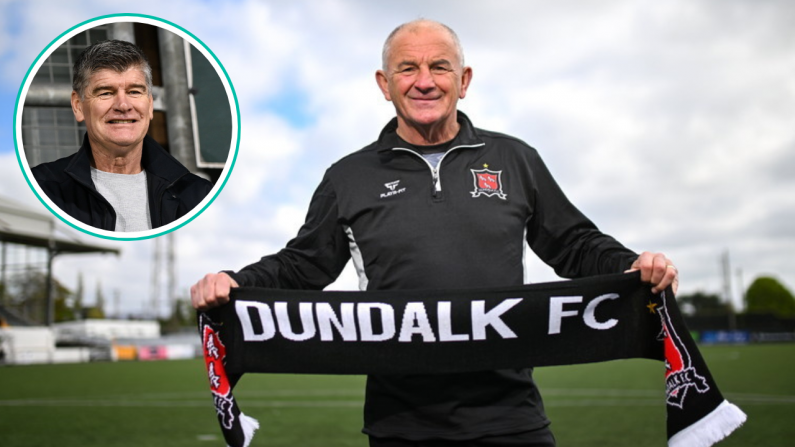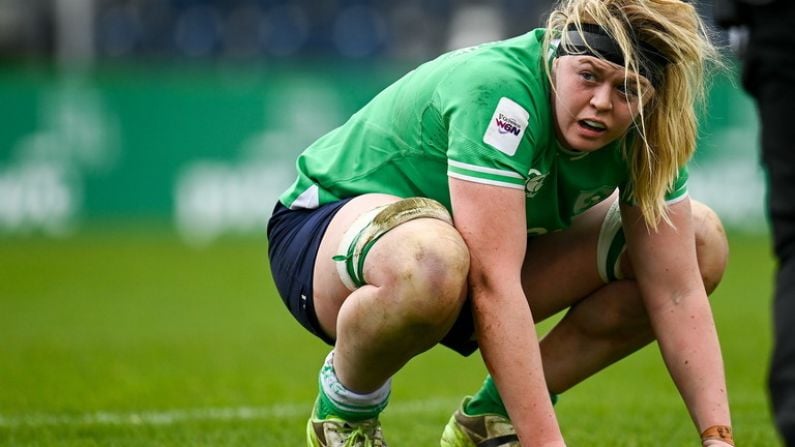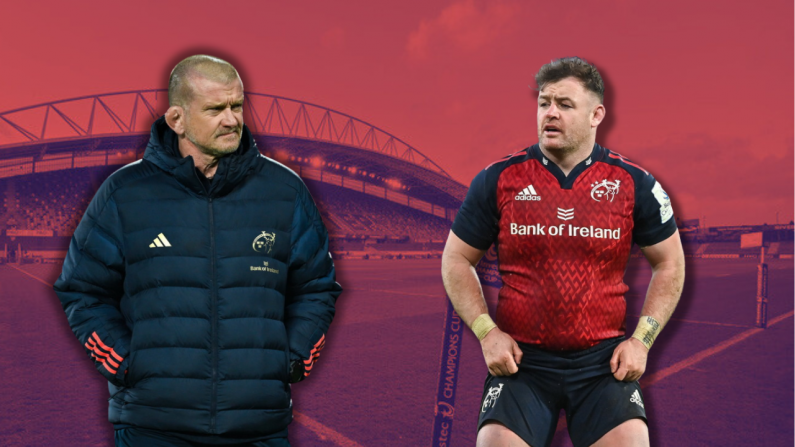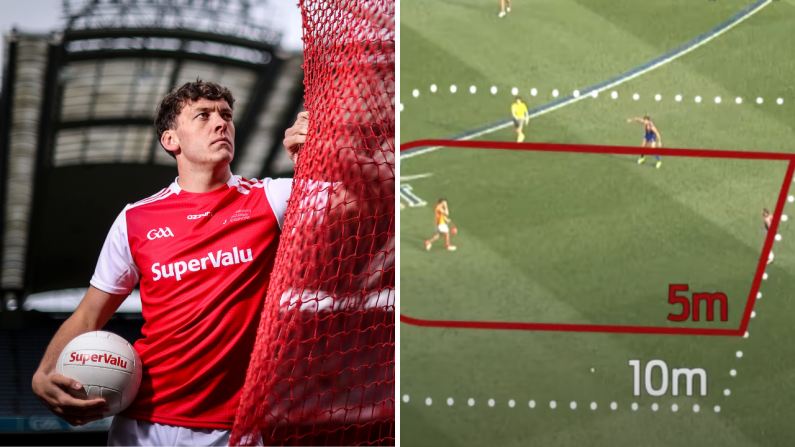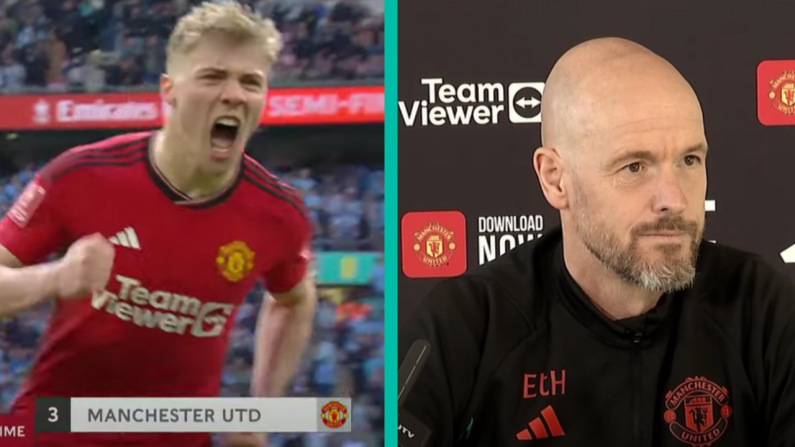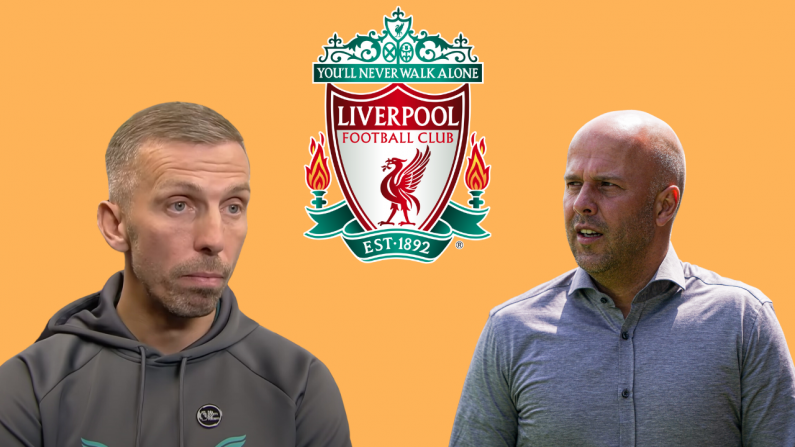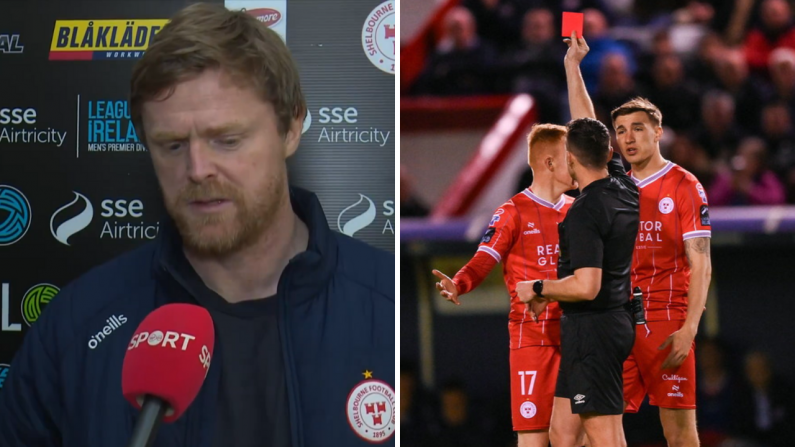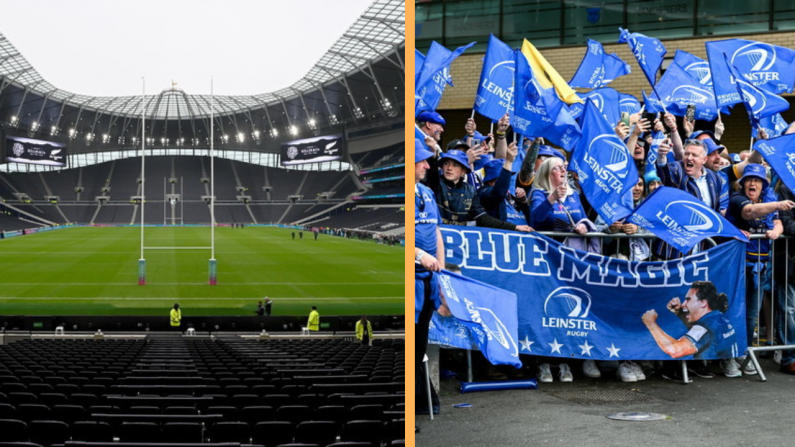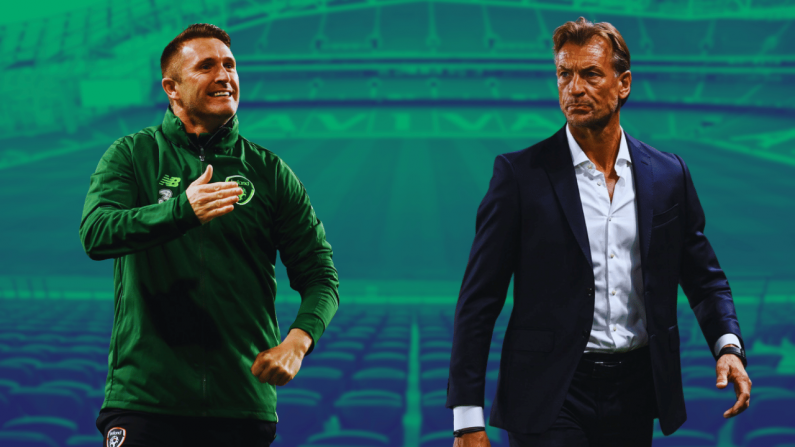Shortly after collecting a 1978 FAI Cup winners medal with Shamrock Rovers, Eamon Dunphy jacks it in and resolves to devote himself full-time to journalism and political speech-writing. That the '78 Cup win is his only medal in senior football doesn't lead him to treasure the item any more. In his early writings, he is contemptuous of the 'Chicken League' and the FAI as a whole, lambasting them for amateurishness at every turn.
The crusty old buggers who run the FAI hit upon an ingenious solution for shutting him up. They decide to offer him the role of FAI Chief Executive. They reason that he will either get bogged down in the quagmire of football administration, thus discrediting him as a future critic of the association. Alternatively, they figure he could go native, shedding his renegade image and becoming chief among the backslappers.
[soundcloud url="https://api.soundcloud.com/tracks/271550501" params="auto_play=false&hide_related=false&show_comments=true&show_user=true&show_reposts=false&visual=true" width="100%" height="450" iframe="true" /]
It is a disastrous miscalculation. Eamon Dunphy goes on to become the most radical chief executive in the history of the FAI, successfully remoulding Irish football in his image, centralising power around himself in a manner which might cause John Delaney to shudder.
1984: Eoin Hand is promptly sacked. John Giles is re-appointed as Ireland football manager
As soon as he's installed, Dunphy carries out a purge against 'daycentskinsmanship' across the association, beginning with his fellow Drumcondra man who is sacked approximately six and a half minutes after Dunphy assumes the reins of power.
He successfully convinces John Giles to return to the Ireland role. Dunphy tries to convince Giles to leave the self-indulgent Liam Brady in Italy but Gilesy ignores the advice.
As was typical of the era, Ireland perform respectably but fail to reach any tournaments.
Dunphy tries to offer Giles a 20-year contract as Ireland manager but Gilesy is growing tired of the management business. He has an offer on the table from Tim O'Connor at RTE Sport.
1990: Ireland crash out of Italia 90 against Romania
Dunphy hires Jack Charlton as Ireland manager, announcing (as he did in the alternate reality known as 'real life) that 'a sense of self-respect and professionalism has returned to Irish football'.
Everything goes swimmingly until the summer of 1990. Dunphy is so incensed by Ireland's display against Egypt in Palermo that he sacks Jack Charlton on the spot.
With little time to hire a a new manager mid-tournament, Dunphy and Giles assume control of the team. The FAI's costs increase substantially as Dunphy is forced to employ round the clock police protection.
He is subject attack by an man brandishing an inflatable hammer getting off the bus in Genoa.
Ireland reach the last 16 and fight Romania to a 0-0 draw after 120 minutes. Unfortunately, David O'Leary is knackered after playing 118 minutes of action is forced to make way for the only centre-back left on the bench, one Mick McCarthy.
The nation held its breath when Mick McCarthy stepped forth to take the fifth penalty. The Barnsley bruiser blazed his spot kick over the bar. Romania won the shootout in sudden death.
1997: The League of Ireland is wound up in the late 1990s
On the subject of the 'Chicken League', Dunphy has generally followed a policy which has been termed 'malign neglect'.
From the late 90s onwards, with the Dublin Dons now playing in a 50,000 seater stadium in Clondalkin, it is decided to wind up the League of Ireland altogether.
The resulting protests dwarf not only the KRAM (Keep Rovers at Milltown) protests of the late 1980s, but the water charge protests. The only historical event which bears comparison is the 1913 Lockout.
With the help of the Sunday Independent, Dunphy remains firm in the face of protests, joking that the protesters can clearly never have watched a League of Ireland game.
In addition to his role in the FAI, Dunphy serves on the board of the Dublin Dons alongside Paul McGuinness, Owen O'Callaghan, and Des Richardson.
They currently play in League One.
Last year, they suffered their greatest humiliation when they were defeated 3-0 by AFC Wimbledon in the Third Round of the FA Cup.
The result was greeted with wild celebration from both the AFC Wimbledon supporters and members of National League United - the founders of the breakaway League of Ireland (which now attracts greater crowds than the League of Ireland had since the 50s).
Manager Damien Richardson composed a sonnet in the aftermath of the loss in a vain effort to cheer up their small fanbase. It was published in the programme notes before the next home game.
2003: All coaches are fired. All astro-turf pitches in the country are tarmacked. Disused Opel Corsa's are plonked beside the pitch roughly in the spot where the sideline used to be
Dunphy embarks on his most radical and controversial scheme yet in an effort to produce more street footballers.
He also establishes a committee called 'The Dictatorships and Poverty' taskforce in an attempt to bring about a golden generation of Irish football. Lobbies the government to ban personal stereos though critics note that this is a possibly toothless endeavor in an era of ipods and Spotify.
2008: Everyone involved in Irish football is made to attend a minimum of two Kilkenny hurling training sessions a month and go on routine fact-finding missions to Ballydoyle and Bagnelstown
It is, according to Dunphy, to help those involved in Irish football imbibe the spirit of the 'Henry Shefflins, the Ruby Walshes, and the Willie Mullins's'.
2009: Dunphy becomes an increasingly intrusive presence in the picking of the Irish team
At the start of 2009, John Giles resigns after his fifth stint as Ireland manager in protest at Dunphy's repeated interference in team selection.
Critics note that Dunphy has instituted a policy known as a 'flavour of the month doctrine' which requires the Irish manager of the day to pick whoever Dunphy decides is the saviour of Irish football that week.
To this end, Andy Reid, James McClean, James McCarthy, Wes Hoolahan, and Damien Delaney have all been parachuted into the Ireland squad.
Stephen Ireland is repeatedly buttered up but he keeps on putting it off. It is clear to most observers that it is a permanently postponable phenomenon but Dunphy never abandons hope.
Wes Hoolahan earned his 100th cap for Ireland last month and is hailed as the greatest triumph of Dunphy's policy.
2011: He uses his role within Irish football as a stepping stone to a political career
With his large national profile, Dunphy decides the economic crisis is the optimal time to launch his political career. He tops the poll in Dublin South-East. The independent alliance wins 30 seats holding the balance of power in the Dáil.
They are handed two ministerial portfolios by a panicky Enda Kenny. Stunningly, Eamon is made 'Minister for Finance' (for what it's worth, Fintan O'Toole is the other minister, after being appointed Minister for Cultural Affairs).
He unilaterally decides to burn the bondholders, a move which sends shock-waves through the European banking system.
Six months later, Ireland becomes the first country to leave the European Union.


